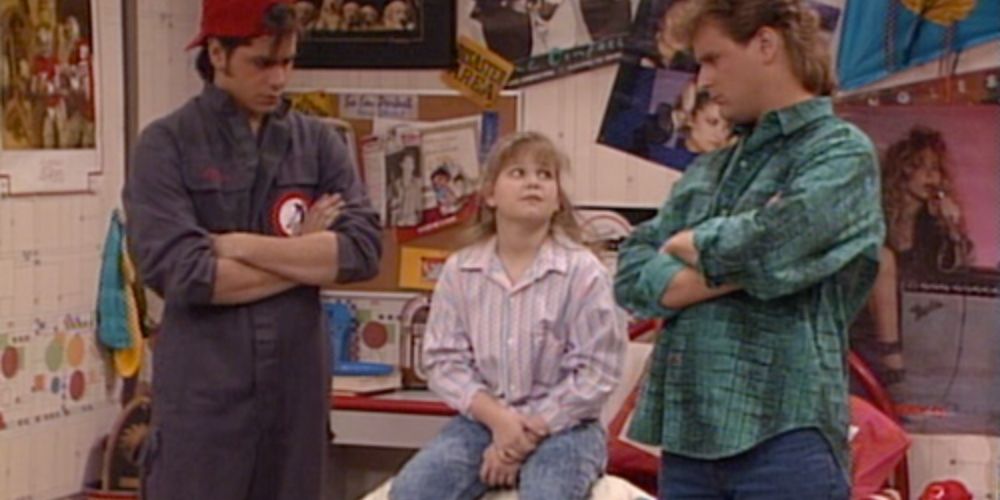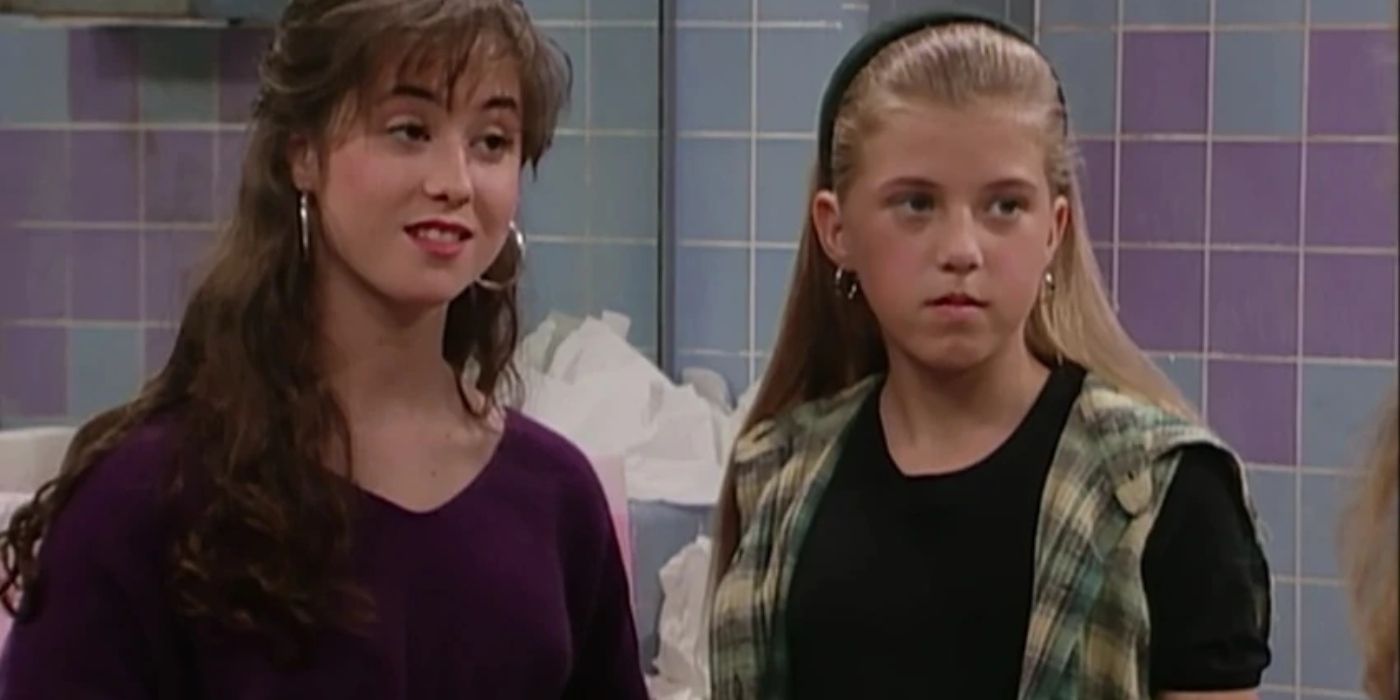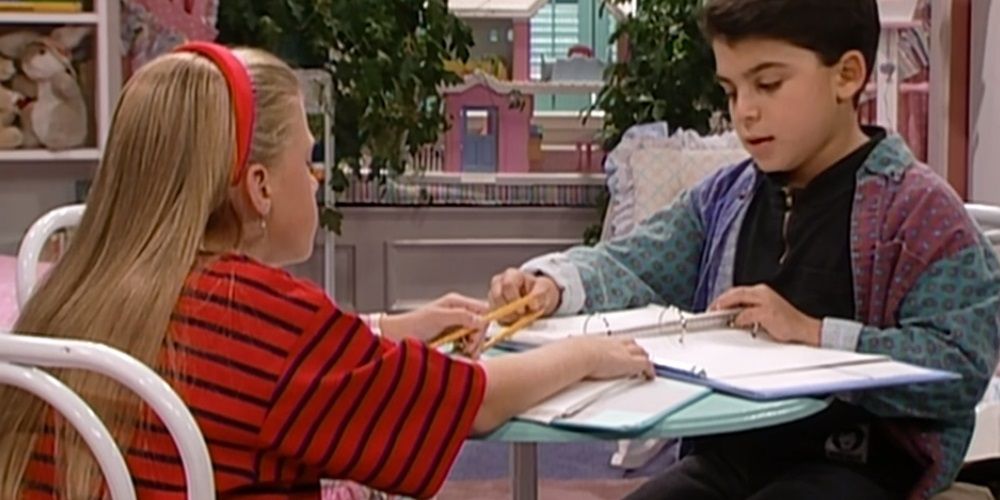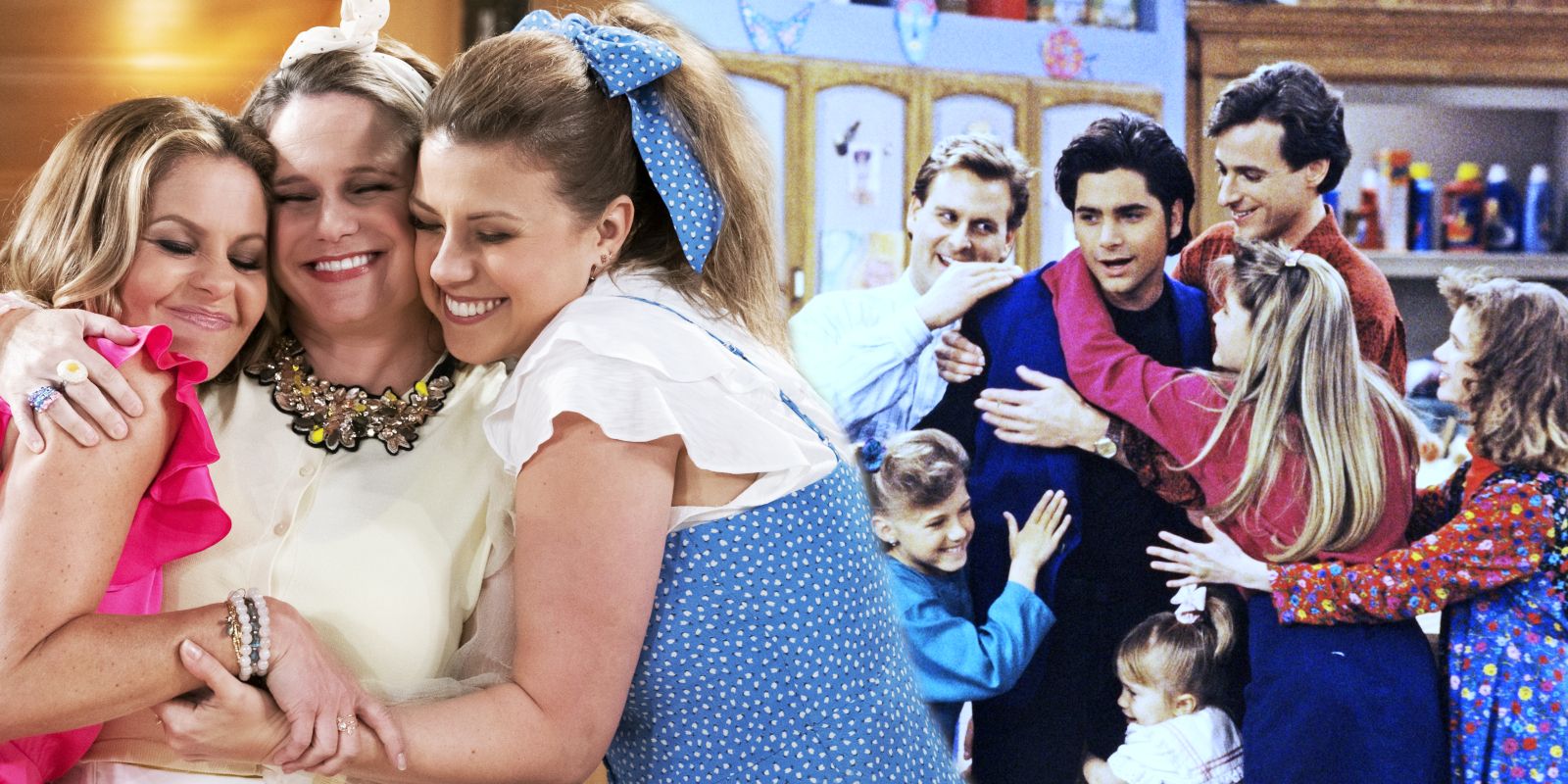
Full House is much darker than its spin-off story of the Tanners, Katsopolises, Fullers, and friends, Fuller House, and here are five stories that prove it. Both Full House and Fuller House deal with typical sitcom situations involving family life, such as romance, school, work, and funny misunderstandings. They also both deal with some heavier topics. Both involve widowed parents, with Danny losing his wife close to the beginning of Full House and DJ losing her husband close to the beginning of Fuller House. Stephanie also deals with infertility in Fuller House.:max_bytes(150000):strip_icc()/Andrea-Barber-Jodie-Sweetin-marykate-ashley-full-house-082223-92a2930a8198479a9138801525a523b8.jpg)
However, overall, Fuller House has a much lighter tone than Full House. The infertility storyline is more heartwarming than heavy. Even DJ’s husband (killed off before Fuller House begins) is dealt with through bittersweet but hopeful storylines. Full House had plenty of those moments, but they also had several “very special episodes” that dealt with serious topics such as drinking, drug abuse, depression and suicide, eating disorders, and more. Here are five of the darkest stories.
Just Say No Way

Episode 21, season 3, “Just Say No Way,” focuses on some trouble that DJ is adjacent to. This time, she gets caught with a beer in her hand by her Uncle Jesse at a school dance. She is genuinely trying to tell some teenagers at the dance that they shouldn’t be drinking, but in this episode of Full House, Uncle Jesse Katsopolis doesn’t believe her. This is very unfair since DJ has never given him any reason to believe she’s lying about something so serious. Fortunately, her date tells DJ’s father the truth about what happened, and Jesse apologizes to her.
This episode is dark because it deals with the serious topic of teen drinking. However, DJ isn’t in trouble because of her own behavior but rather the assumptions and fears of her parents. In that way, it’s a special episode for adults, too. After all, accusing someone of something they didn’t do is a great way to get them to do it. Fortunately, Danny Tanner (Bob Saget) and his Full House village of Jesse, Becky, and Joey raised a teenager more likely to insist on justice than to get drunk because they were already in trouble. In the best tradition of these episodes, everyone learns something by the end.
Fast Friends

In Full House episode 5, season 7, “Fast Friends,” Stephanie is trying to fit in with some new friends. She had just started 6th grade and had to leave her friends behind when the schools were redistricted. Making new friends at that age is difficult, and she is desperate to fit in. She meets a cool 7th grader, Mickey, who wants to be Stephanie’s friend. However, Micki and her mean girl friends all smoke cigarettes. Smoking would hardly be the worst thing Stephanie’s done on Full House. However, Stephanie turns them down, and they make fun of her. She comes back with an attitude and wins Mickey’s respect and friendship for real. Later on, she becomes friends with another one of the girls, Gia.
“Fast Friends” deals with teenage smoking, albeit in a somewhat perfunctory way. After all, Stephanie doesn’t smoke, and the teenagers who are supposedly doing so barely light up, let alone take a drag. Stephanie stands up for herself, and it works out beautifully, which is often not how it goes in real-life situations. It also seems like episodes like this did have a positive effect, as teen smoking has steadily dropped since the 80s.
Shape Up

Episode 8, season 4, “Shape Up,” is another special DJ story. DJ is a teenager now and is feeling pressure about her looks. DJ’s best friend, Kimmy Gibbler, constantly at the Tanners’ home, is having a pool party at a hotel for her 14th birthday. DJ freaks out about how she looks in a swimsuit and embarks on a crash diet in order to lose an unspecified amount of weight in less than two weeks. She overtrains at the gym after not eating for three days, which causes her to feel faint. After a lecture from her father on genuine friendship, she is cured of her disordered eating.
It doesn’t get much darker than teenagers refusing to eat because they want to look like a touched-up magazine photograph. This topic is ubiquitous today, with frequent articles on the dangers of Instagram for teenage girls. However, diet culture was ramping up in the 80s and 90s. The darkest part of this story is that no one considers the reason for DJ’s personality change to become obsessed with calories to be a red flag. Aunt Becky happily encourages her to work out and eat flavorless meals to achieve her ideal look. While somewhat cheesy, this episode paved the way for better treatments in more recent shows.
Silence Is Not Golden

Once again, Stephanie learns an important lesson in episode 17, season 6, “Silence Is Not Golden.” This time, the lesson is about when to keep something in confidence and when to speak up. Stephanie is writing a homework assignment with a classmate named Charles. In a conversation with Charles, she finds out that his father is hurting him. Charles asks Stephanie not to tell, but she tells Uncle Jesse because this situation is too big for her to handle alone. She finds out that her friend has gone to foster care and gets very upset, but in the final scene, Uncle Jesse is there with a hug and a speech about doing the right thing.
“Silence is Not Golden” probably has the darkest subject – child abuse. The abuse isn’t shown, as that would be too dark for a sitcom at this time. However, when he realizes he is running late, Charles’s reaction says it all. Stephanie is traumatized by association, first by having to keep the secret and then by hearing about Charles going to foster care. Unusually for very special episodes, this one doesn’t have a neat and tidy ending. Stephanie cries in Uncle Jesse’s arms as the credits roll, and the viewers never learn Charles’ fate. That makes this one pretty haunting.
Under the Influence

This last special episode is from the final season of Full House (episode 8, season 10, “Under the Influence”). In season eight of Full House, Kimmy Gibbler and DJ Tanner are now 17 and about to graduate high school. They go to a party at a local university and end up coming home early because Kimmy gets very drunk and gets herself and DJ kicked out of the party. Kimmy, of course, remembers her behavior as much more together than it really was and blames DJ for ruining the night. The girls have a big fight and later an even bigger reconciliation. DJ tells Kimmy that she insisted on taking Kimmy’s keys because a drunk driver killed DJ’s mother. Thanks to this revelation, Kimmy recovers from a drinking problem within a few days’ time.
Like many of the very special episodes of the 80s and 90s sitcoms, these episodes dealt with heavy subjects at a surface level. The fact remains, though, that doing so at all was considered groundbreaking at the time. Before this, Comedic shows focused on gentle humor about silly things children did or similar themes. Fuller House follows that format, and it works for them. Showing teenagers drinking or starving themselves was considered inappropriate for general consumption until Gen X sitcoms like Full House brought these issues in front of home audiences. Thanks to that, sitcoms and dramas can now tackle these serious issues in more realistic ways.

